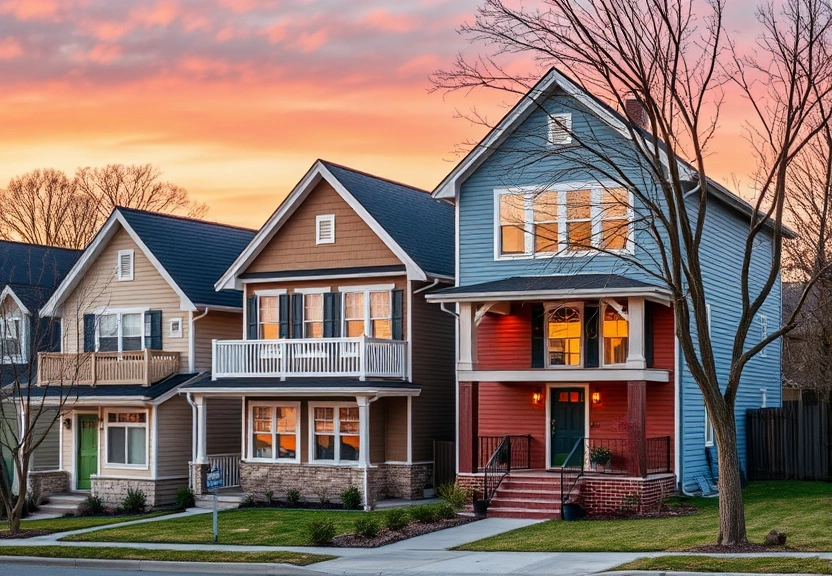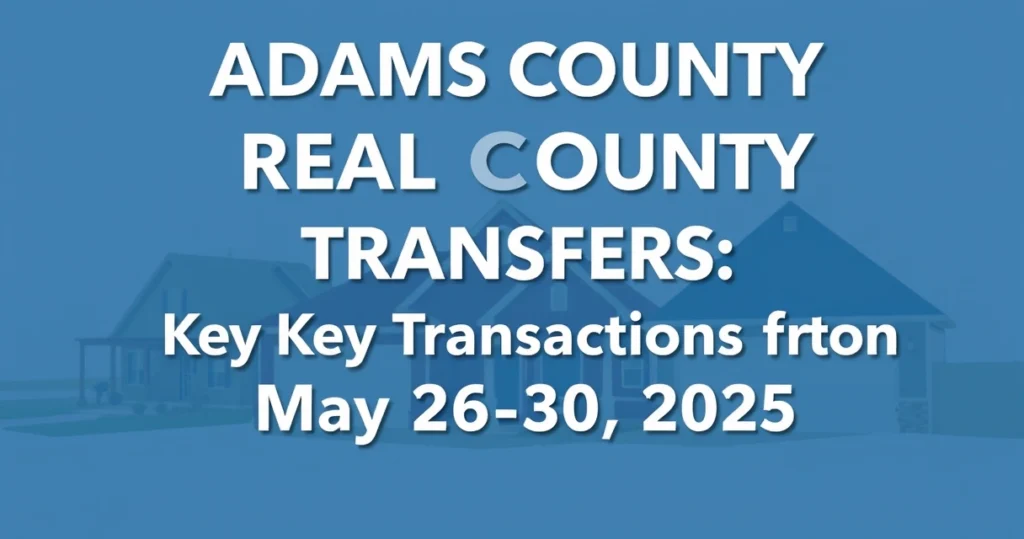Nashville’s Housing Market: A Surprising Turn for Homebuyers
Nashville, Tennessee, often referred to as Music City, has long been a hotspot for homebuyers and real estate investors alike. With its vibrant culture, booming job market, and attractive lifestyle, the Nashville housing market has experienced remarkable growth over the past decade. However, recent trends suggest a significant reversal in the dynamics of this once fiercely competitive market. For potential homebuyers, this shift presents unique opportunities and challenges that warrant careful consideration.

This article delves into the current state of Nashville’s housing market, highlighting the surprising changes that have taken place, the implications for homebuyers, and the potential for property investment. Whether you’re a first-time buyer, an experienced investor, or simply curious about real estate trends, understanding this reversal will equip you with the insights needed to navigate Nashville’s evolving landscape.
Understanding the Recent Changes in Nashville’s Housing Market
The Nashville housing market has historically been characterized by soaring prices, bidding wars, and limited inventory. However, recent data indicates a shift that could redefine the landscape for homebuyers. Factors such as rising interest rates, economic fluctuations, and changes in buyer preferences are contributing to this unexpected turn. Let’s explore these dynamics in detail.
Rising Interest Rates and Their Impact
One of the most significant factors influencing the Nashville housing market is the increase in mortgage interest rates. Over the past few years, the Federal Reserve has incrementally raised rates to combat inflation. As a result, financing a home has become more expensive for many buyers. This trend has led to a cooling effect on demand, allowing buyers to regain some negotiating power.
Shifts in Buyer Preferences
In recent years, remote work and lifestyle changes have altered the preferences of homebuyers. Many individuals and families are now prioritizing space, home offices, and outdoor areas, often seeking properties in suburban or less densely populated areas. This shift has contributed to a decrease in demand for urban properties, leading to a more balanced market overall.
Market Analysis: Current Trends and Statistics
To better understand the current state of the Nashville housing market, it’s essential to analyze recent statistics and trends. According to the latest reports, home prices in Nashville have shown signs of stabilization, with some areas witnessing price reductions. Here’s a closer look at the key statistics:
- Median Home Prices: As of late 2023, the median home price in Nashville has decreased by approximately 5% compared to the previous year, signaling a shift from the ultra-competitive environment of previous years.
- Days on Market: Homes are spending an average of 30 to 45 days on the market, compared to only a few days just two years ago.
- Inventory Levels: The inventory of available homes has increased by 20%, providing prospective buyers with more options.
- Home Sales Volume: Although home sales have dipped, the decline has been less severe than in other major metropolitan areas, indicating Nashville’s resilience.
Neighborhood Trends
Different neighborhoods in Nashville are experiencing varying degrees of change. Areas that were once highly sought after are now seeing slower appreciation rates, while up-and-coming neighborhoods are becoming increasingly attractive to homebuyers. For example, neighborhoods such as East Nashville and The Nations are gaining popularity due to their unique character and affordability.
Opportunities for Homebuyers in a Changing Market
With the market’s unexpected turn, homebuyers now find themselves in a more favorable position compared to previous years. Here are some of the opportunities available:
Increased Negotiation Power
As competition has waned, buyers can negotiate more favorable terms, including price reductions, closing cost assistance, and contingencies that were previously uncommon in a seller’s market. This shift empowers buyers to make more informed decisions without the pressure of immediate bidding wars.
Exploring Suburban Options
With the rise of remote work, many buyers are looking beyond the urban core for homes that offer more space and amenities. Suburban areas around Nashville, such as Franklin, Brentwood, and Mt. Juliet, are becoming increasingly attractive for families seeking a balance between urban convenience and suburban tranquility.
Long-term Investment Potential
For investors, the current state of the Nashville housing market presents a unique opportunity. As prices stabilize, investors can acquire properties with the potential for long-term appreciation. The city’s strong job market and growing population continue to create demand, making it a sound investment choice.
Challenges Facing Homebuyers in Nashville
While the current housing market offers advantages, homebuyers should also be aware of the challenges that persist. Here are some key considerations:
Economic Uncertainty
Broader economic factors, such as inflation and supply chain disruptions, could impact the housing market and the overall economy. Buyers should remain vigilant and informed about economic trends that could affect their purchasing power.
Rising Property Taxes
As Nashville’s population grows, so too does the demand for public services and infrastructure. This has led to rising property taxes, which could impact the long-term affordability of homes in the area. Prospective buyers should factor in these costs when budgeting for a home purchase.
Potential for Market Fluctuations
While the current market may favor buyers, it’s essential to consider the possibility of future fluctuations. Economic conditions can change rapidly, and buyers should be prepared for potential shifts in the market dynamics.
Frequently Asked Questions (FAQ)
1. Is now a good time to buy a home in Nashville?
Yes, now is an opportune time for homebuyers due to increased inventory and less competition, allowing for better negotiation power.
2. What neighborhoods are currently the best for homebuyers in Nashville?
Neighborhoods such as East Nashville, The Nations, and suburbs like Franklin and Brentwood are becoming increasingly popular for their affordability and amenities.
3. How have mortgage interest rates affected homebuying in Nashville?
Rising mortgage interest rates have made financing more expensive, leading to a cooling of demand and providing buyers with more options.
4. Are property values in Nashville expected to decline further?
While some areas are experiencing price stabilization, overall demand and economic factors suggest that Nashville will remain a strong market for long-term property value appreciation.
5. What should first-time homebuyers consider in the current market?
First-time homebuyers should focus on understanding their budget, exploring different neighborhoods, and being prepared to negotiate favorable terms in their home purchase.
Conclusion
Nashville’s housing market is undergoing a surprising transformation that presents both challenges and opportunities for homebuyers. With rising interest rates and changing buyer preferences leading to a more balanced market, potential homeowners can now navigate the landscape with greater confidence. Understanding the current trends and statistics is essential for making informed decisions in this evolving environment. As Nashville continues to grow and adapt, homebuyers and investors alike can find their place in this dynamic city, paving the way for a promising future in real estate.
📰 Original Source
Este artigo foi baseado em informações de: https://www.axios.com/local/nashville/2025/06/09/nashville-buyers-housing-markets


